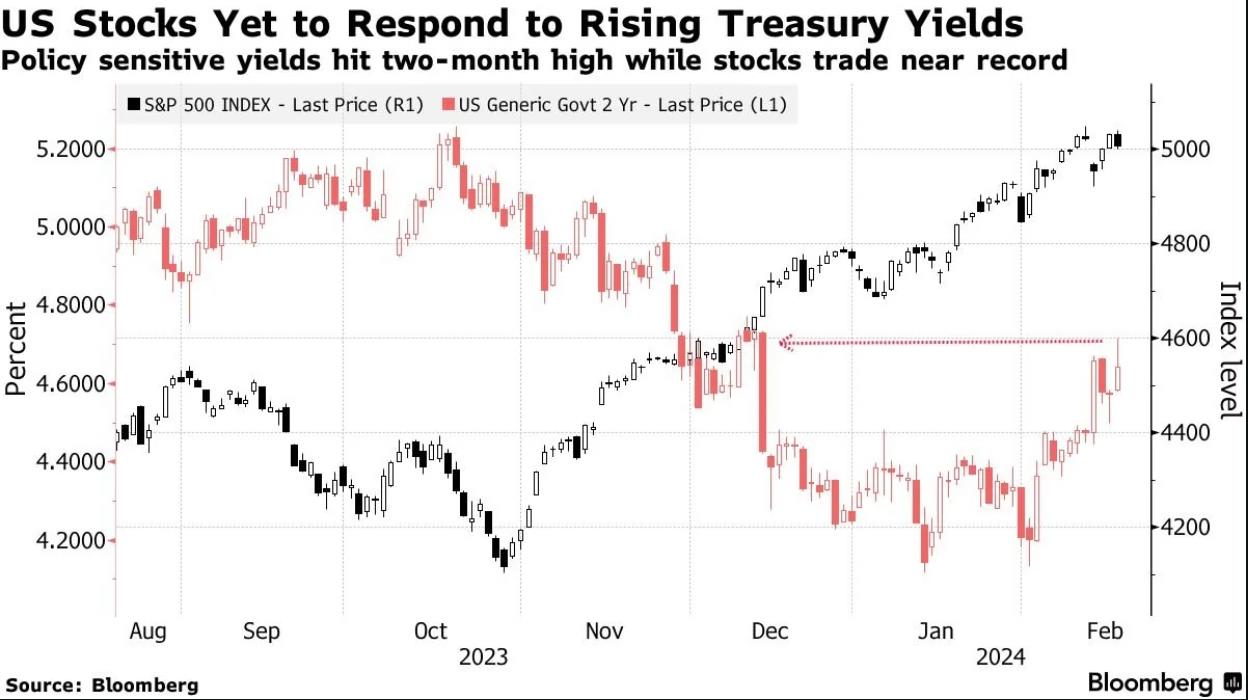
Amidst a complex financial landscape, US banks are grappling with the looming risks of $2.7 trillion in commercial real estate loans. Regional banks, holding the majority of this portfolio, are particularly vulnerable as they face more than $2.2 trillion in loan maturities by the end of 2027, raising concerns about their resilience in the face of potential challenges.
Simultaneously, the US corporate bond market is witnessing a distinctive trend. The riskiest segment, Triple C-rated bonds, has faced renewed pressure this year, diverging from the broader debt market rally. Data from Ice BofA reveals an average yield of 13.6% for these bonds, up from just over 13% at the end of 2023, reflecting falling prices. The spread, indicating the premium these lowly-rated borrowers must pay over US Treasury debt, has expanded to 9.28 percentage points from 8.51% in late December.
Investors are displaying caution, driven by fears of stop-start access to funding and deepening distress for low-grade borrowers. Finance of America, backed by Blackstone, is navigating challenges to avoid delisting, while the FHA Reverse Mortgage sector’s struggles prompt strategic offloading through authorized sales by the Department of Housing and Urban Development (HUD).
Sources:
🇺🇸 Investors shun riskiest US corporate #bonds on default fears – FThttps://t.co/ogzkV8VFkL pic.twitter.com/u0qswrMFbt
— Christophe Barraud🛢🐳 (@C_Barraud) February 19, 2024
Blackstone-backed Finance of America attempting to avoid delisting
FHA Reverse Mortgage in trouble which is why HUD has a special program that offloads them to authorized parties through saleshttps://t.co/LzEto6YvmH pic.twitter.com/ntbhi2UhWD
— Melody Wright (@m3_melody) February 19, 2024
US banks hold about $2.7 trillion in commercial real estate loans, per CNN.
80%, according to Goldman Sachs economists, is held by smaller, regional banks.
More than $2.2 trillion will come due between now and the end of 2027, according to data firm Trepp.
— unusual_whales (@unusual_whales) February 19, 2024